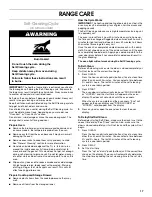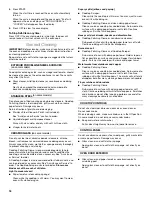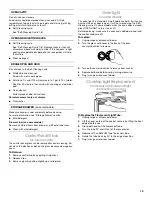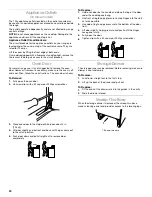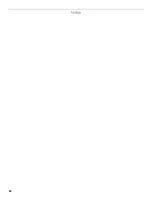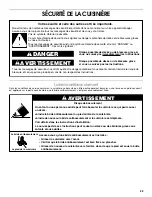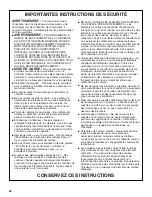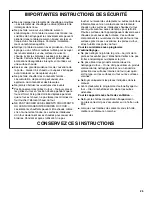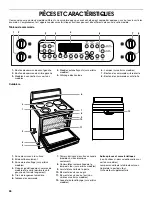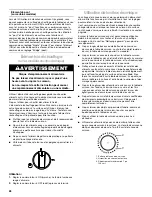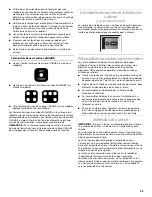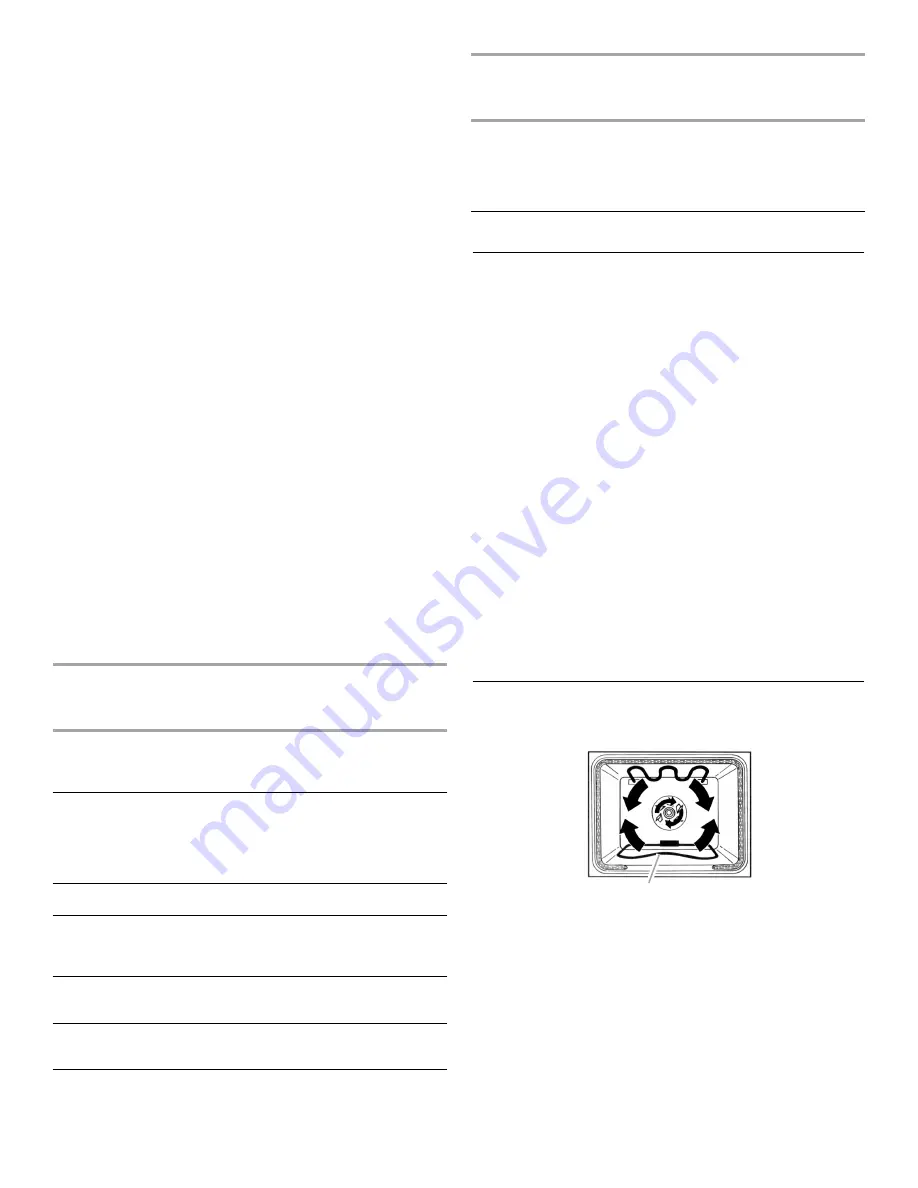
14
To Broil:
Before broiling, position the rack according to the Broiling Chart.
Position food on the grid in the broiler pan, then place it in the
center of the oven rack with the longest side parallel to the door.
It is not necessary to preheat the oven before putting food in,
unless recommended in the recipe.
Leave the door partly open when you use the oven to broil. This
allows the oven to stay at the proper temperature.
1.
Press BROIL.
2.
Press START.
The set oven temperature will appear on the display until the
oven is turned off.
3.
Press OFF when finished cooking.
To Vari Broil:
Changing the temperature when custom broiling allows more
precise control when cooking. The lower the temperature, the
slower the cooking. Thicker cuts and unevenly shaped pieces of
meat, fish and poultry may cook better at lower broiling
temperatures.
1.
Press BROIL.
Press the TEMP “up” or “down” arrow pads (buttons) to enter
a temperature other than 500°F (260°C). The broil range can
be set between 300°F (150°C) and 525°F (275°C).
2.
Press START.
The set oven temperature will appear on the oven display
until the oven is turned off.
3.
Press OFF when finished cooking.
BROILING CHART
For best results, place food 3 in. (7 cm) or more from the broil
element. Times are guidelines only and may need to be adjusted
for individual foods and tastes. Recommended rack positions are
numbered from the bottom (1) to the top (4). Do not use position
5. For diagram, see the “Positioning Racks and Bakeware”
section.
Convection Cooking
(on some models)
In a convection oven, the fan-circulated hot air continually
distributes heat more evenly than the natural movement of air in a
standard thermal oven. This movement of hot air maintains a
consistent temperature throughout the oven, cooking foods more
evenly, crisping surfaces while sealing in moisture and yielding
crustier breads.
Most foods can be cooked by lowering cooking temperatures
25°F to 50°F (14°C to 28°C) and cooking time can be shortened
by as much as 30 percent, especially for large turkeys and roasts.
■
It is important not to cover foods so that surface areas remain
exposed to the circulating air, allowing browning and crisping.
■
Keep heat loss to a minimum by only opening the oven door
when necessary.
■
Choose cookie sheets without sides and roasting pans with
lower sides to allow air to move freely around the food.
■
Test baked goods for doneness a few minutes before the
minimum cooking time with an alternative method such as a
toothpick.
■
Use a meat thermometer or the temperature probe to
determine the doneness of meats and poultry. Check the
temperature of pork and poultry in 2 or 3 places.
Convection Bake
(on some models)
Convection baking can be used for baking delicate cakes and
pastries, as well as foods on multiple racks. It is helpful to
stagger items on the racks to allow a more even flow of heat. If
the oven is full, extra cooking time may be needed.
When cooking an oven meal with several different types of foods,
be sure to select recipes that require similar temperatures.
Cookware should sit in the oven with at least 1 in. (2.5 cm) of
space between the cookware and the sides of the oven.
FOOD
RACK
POSITION
COOK TIME
minutes
SIDE 1 SIDE 2
Chicken
bone-in pieces
boneless breasts
3
4
17-20
11-16
17-20
11-16
Fish
Fillets
¹₄
-
¹₂
in.
(.6-1.25 cm) thick
Steaks
³₄
- 1 in.
(2-2.5 cm) thick
4
4
8-10
16-18
4-5
8-9
Frankfurters
4
5-7
3-4
Ground meat patties*
³₄
in. (2 cm) thick
well done
4
13-14
7-8
Ham slice, precooked
¹₂
in. (1.25 cm) thick
4
8-10
4-5
Lamb chops
1 in. (2.5 cm) thick
4
14-17
8-9
Pork chops
1 in. (2.5 cm) thick
4
20-22
10-11
Steak
1 in. (2.5 cm) thick
medium rare
medium
well done
4
4
4
14-15
15-16
18-19
7-8
8-9
9-10
*Place up to 12 patties, equally spaced, on broiler grid.
1. Convection bake element
FOOD
RACK
POSITION
COOK TIME
minutes
SIDE 1 SIDE 2
1

















